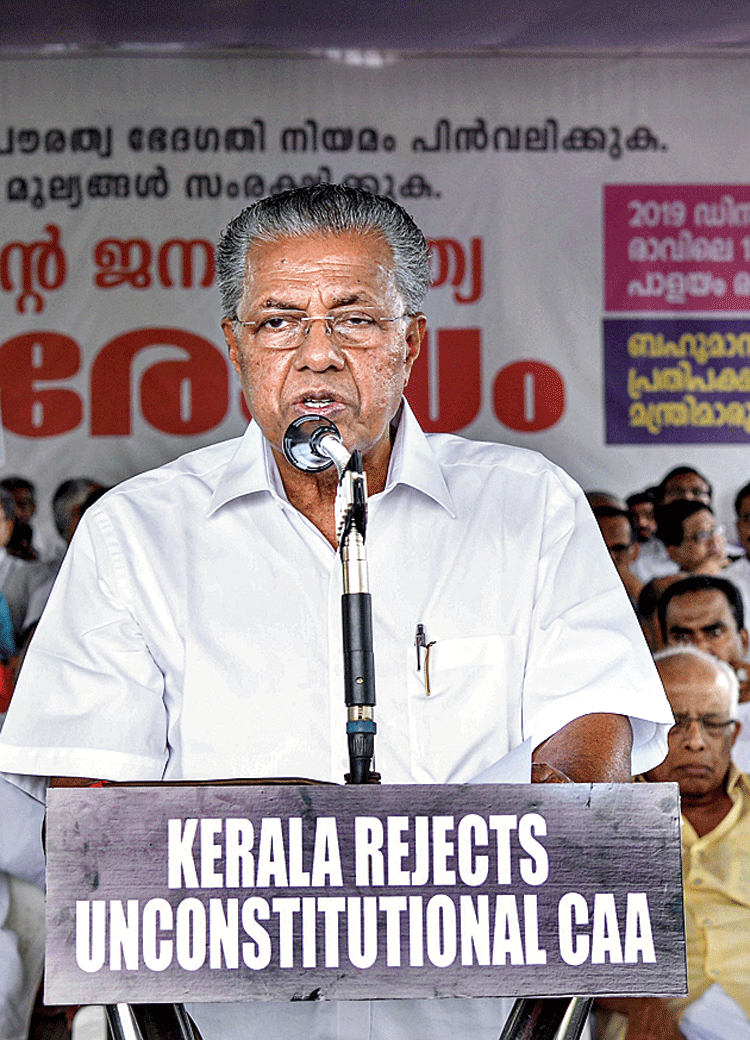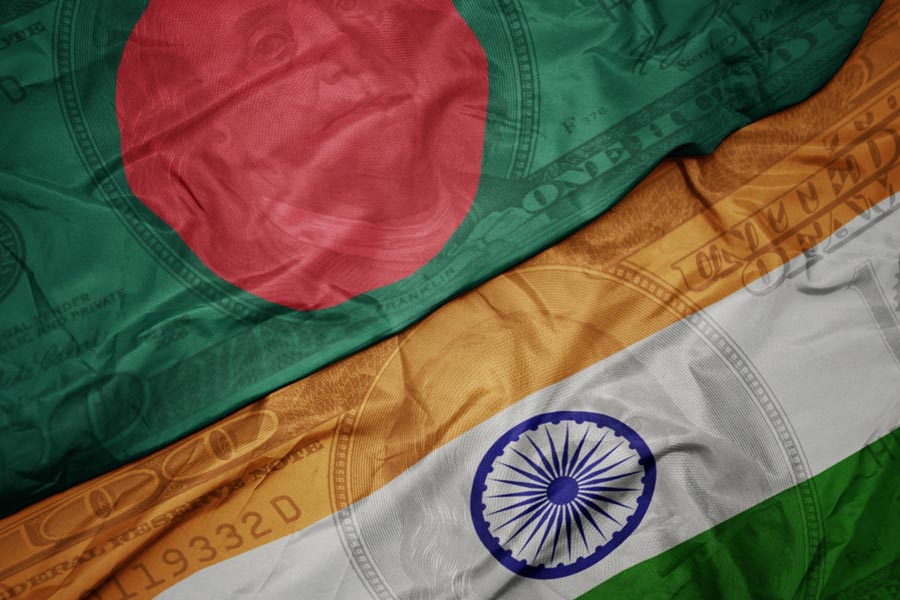The Kerala government on Tuesday became the first state to challenge the Citizenship (Amendment) Act in the Supreme Court.
The petition of the state, which had earlier passed a resolution in the Assembly against implementing the CAA, is expected to come up for hearing on January 22 along with a batch of over 60 pleas filed by various individuals and organisations challenging the amended law.
Kerala chief minister Pinarayi Vijayan tweeted later in the day: “Kerala will be at the forefront to protect the Constitution and fundamental rights. With a suit in the Supreme Court against #CAA, State has made another intervention to protect the rights of citizens. We must make all efforts to secure our democracy.”
In its petition filed through advocate G. Prakash, Kerala has contended that the purported classification made in the legislation is “arbitrary and unreasonable and discriminatory, as having no nexus with the objects and purposes of the legislation in question and is, therefore, violative of Article 14 (right to equality) of the Constitution of India”.
The amended act proposes to give citizenship to persecuted Hindus, Christians, Sikhs, Buddhists and Parsis from Pakistan, Bangladesh and Afghanistan, but does not include Muslims.
“The impugned amendment act in question is a colourable legislation; in as much as there is a constitutional prohibition to make the said legislation in violation of the secular nature of the Constitution; but despite the same, the Legislature has enacted it,” the Kerala government petition said.
The state contended that there was “no rationale” behind grouping together for the purposes of the amendment act the three countries of Pakistan, Afghanistan and Bangladesh.
“Such grouping is not founded on any rational principle justifying a separate special treatment for the irrationally chosen class of religious minorities facing persecution on the basis of religion therein,” the petition said.
It argued that the act was bereft of any standard principle or norm and discriminated against migrants from other countries such as Sri Lanka, Myanmar and Bhutan.
“There is no rationale in not extending the rights conferred to a class of minorities from Pakistan, Afghanistan and Bangladesh to religious minorities belonging to the said countries of Sri Lanka, Myanmar, Nepal and Bhutan. The arbitrary classification of the aforesaid three countries of Pakistan, Afghanistan and Bangladesh without any rationale or standard principles constitutes manifest arbitrariness and violates Article 14 of the Constitution,” the petition said.
Elaborating on its allegation of discrimination, the Kerala government said that while Hindus from Pakistan, Afghanistan and Bangladesh are covered by the amended law, the Centre did not consider the Hindus, primarily of Tamil descent, from Sri Lanka and the Hindu Madhesis from Terai in Nepal. The ancestors of these people had migrated to Sri Lanka and Nepal in the eighteenth century from then British India.
“Likewise, the impugned amendment act covers Christians of Pakistan, Bangladesh and Afghanistan whereas the defendant did not consider the issues of Christians of Bhutan and Sri Lanka. So also, the impugned amendment act covers Buddhists from Pakistan, Bangladesh and Afghanistan. But the defendant did not consider the issues of Buddhists of Nepal,” the petition said.
“The impugned amendment act and rules and orders cover certain religious minorities of Pakistan, Bangladesh and Afghanistan and overlook other reportedly persecuted religious minorities/ minority sects therein such as Ahmaddiyas, Shias and Hazaras.
“Ahmaddiyas are reportedly subjected to persecution in Pakistan and Bangladesh. Shias are reportedly subjected to persecution in Pakistan, Afghanistan and Bangladesh. Reportedly, Hazaras are historically the most restrained ethnic minority group in Afghanistan.
“If the object of the impugned amendment act is to protect the ‘minorities who faced religious persecution in Afghanistan, Pakistan and Bangladesh’, then the Ahmaddiyas and Shias from these countries are also entitled to treatment equal to that being now extended to Hindu, Sikh, Buddhist, Jain, Parsi and Christian communities,” the petition said.
It pointed out that the persecuted Rohingya Muslims of Myanmar and Muslims of Sri Lanka had also been overlooked.











